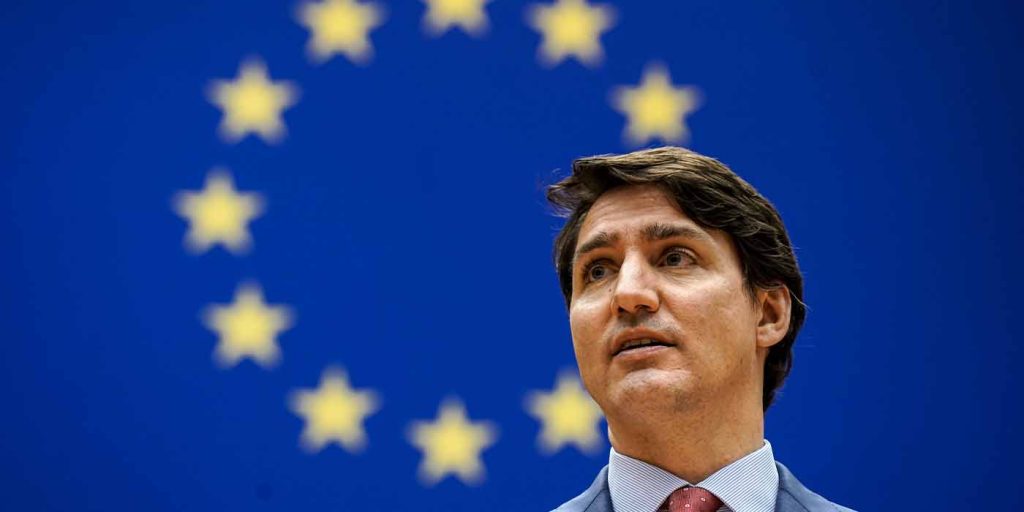The threat of tariffs and an all-out trade war over Chinese EVs is expanding globally, and Canada is reportedly joining the turmoil. The Canadian government is preparing tariffs on Chinese-made EVs to align with the US and European Union, which have already proposed heavy duties to deter “unfair” competition imported from overseas.
Another day, another update on the ongoing battle over EVs built in China and the attempts by those local automakers to expand their global presence.
You probably know a lot about the background of this saga by now. Still, this tale began when the EU Commission announced an anti-subsidy probe last fall, claiming that EV models built in China and imported to the region were at an unfair advantage.
As the EU conducted its probe, the US, led by the Biden Administration, wasted no time upping the duties on Chinese EV imports in the US, raising tariffs from 25% to a whopping 100%. The EU Commission followed suit, threatening its own tariffs before even sharing the results of its probe.
In retaliation, China has threatened tariffs on vehicles imported from Europe, inciting German automakers to reach across the aisle (and the globe) to help ease tensions and hopefully said tariffs. The EU’s tariffs on Chinese EVs can go as high as 48% and are scheduled to take effect in less than two weeks.
According to a new report, Canada is the latest nation to enter the EV tariff battle. The country holds strong ties with the US and EU and looks to align with its trade partners in solidarity while blocking a potential loophole China could use to enter North America.

Canada urges Trudeau to impose tariffs on Chinese EVs
According to sources familiar with the matter, the government of Canada, led by Prime Minister Justin Trudeau, is preparing tariffs on imported EVs built in China, per a Bloomberg report.
The tariff talks are still in the early stages as Canada discusses how and when to proceed. Still, the US neighbors to the north appear poised to align with its trade partners against China. Furthermore, Canadian officials who requested to stay anonymous shared that public consultations on tariffs will begin soon.
Trudeau and his administration have faced increased pressure from the Canadian people and other democratic allies to join rank against Chinese imports. On Thursday, Ontario Premier Doug Ford took to X to accuse China of poor local manufacturing practices in building its inexpensive EVs:
Taking every advantage of low labour standards and dirty energy, China is flooding the market with artificially cheap electric vehicles. Unless we act fast, we risk Ontario and Canadian jobs.
Over the last four years, Ontario has a secured $43 billion worth of investments in electric vehicle and battery manufacturing, securing hundreds of thousands of good, well-paying jobs. This has been an all-hands-on-deck achievement, working side-by-side with the federal government and our private-sector labour partners.
We can never take our progress for granted. Our workers are the best in the world. As governments, we need to do everything in our power to protect their jobs and the paycheques they take home.
Now’s the time to work with our U.S. partners to deepen and strengthen home-grown, US-Canada supply chains. Now’s the time to protect good, hard-earned Ontario and Canadian jobs by matching U.S. tariffs on Chinese imports.
Despite growing pressure, Prime Minister Trudeau has not publicly committed to Canada imposing tariffs on Chinese EVs, stating the cabinet is monitoring the situation closely, and he had “significant conversations” at the Group of Seven leaders’ summit in Italy last week.
Canada’s auto industry has also called on its government to impose tariffs on Chinese EV imports, arguing that the nation cannot be on the opposite side of the issue with the US, a major trade partner in North America with which it shares several automotive supply chains.
Canada saw the number of Chinese imports grow by fivefold last year, including a majority of EVs built by Tesla in Shanghai. However, Canada’s focus, like that of the US and EU, is more on tariffs on vehicles from China-based automakers like BYD.
Meanwhile, Chinese automakers like BYD are already setting up manufacturing sites in Mexico, which has welcomed the business and has opened the door to at least some EV sales in North America.
This story is ongoing.
FTC: We use income earning auto affiliate links. More.

